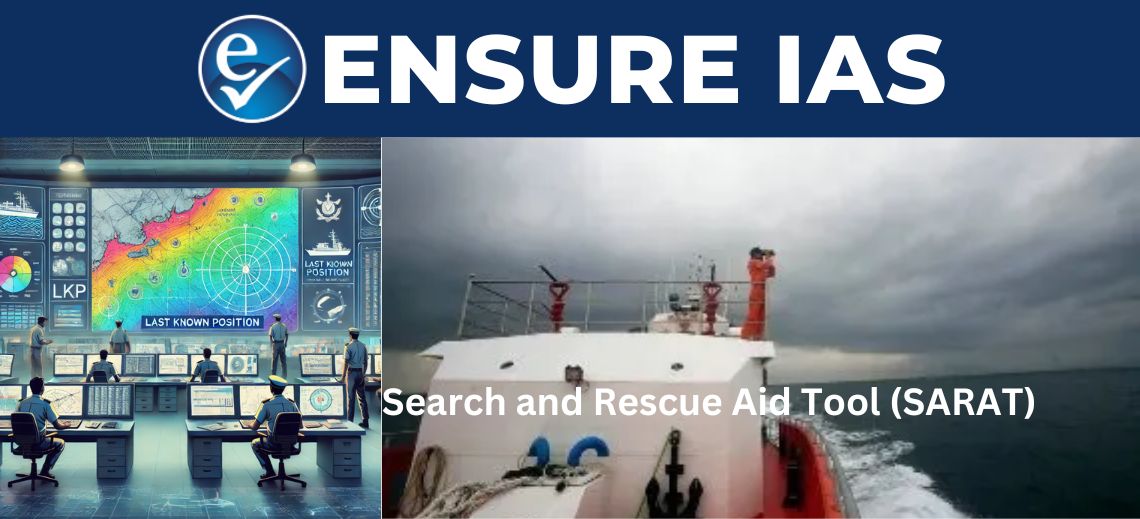- Courses
- GS Full Course 1 Year
- GS Full Course 2 Year
- GS Full Course 3 Year
- GS Full Course Till Selection
- MEP (Mains Enrichment Programme) Data, Facts
- Essay Target – 150+ Marks
- Online Program
- GS Recorded Course
- NCERT- First Ladder
- Polity
- Geography
- Economy
- Ancient, Medieval and Art & Culture AMAC
- Modern India, Post Independence & World History
- Environment
- Governance
- Science & Technology
- International Relations and Internal Security
- Disaster Management
- Ethics
- Current Affairs
- Indian Society and Social Issue
- CSAT
- 5 LAYERED ARJUNA Mentorship
- Public Administration Optional
- ABOUT US
- OUR TOPPERS
- TEST SERIES
- FREE STUDY MATERIAL
- VIDEOS
- CONTACT US
Search and Rescue Aid Tool (SARAT)
Search and Rescue Aid Tool (SARAT)

The Indian National Centre for Ocean Information Services (INCOIS) has developed an advanced version of the Search and Rescue Aid Tool (SARAT). This upgraded version is aimed at enhancing the accuracy and efficiency of sea-based search and rescue (SAR) operations, particularly for agencies like the Indian Coast Guard.
About Search and Rescue Aid Tool (SARAT)
1. Development and Purpose:
- Launched: SARAT was originally developed in 2016 under the Make in India initiative.
- Objective: The tool’s primary purpose is to aid in the quick identification of individuals or vessels in distress during sea operations, facilitating faster search and rescue actions.
- Availability: SARAT is also available as a mobile application, making it accessible for wider use.
2. Key Features: The tool improves the accuracy of search and rescue missions by providing real-time information about the location of vessels or individuals in distress.
About Indian National Centre for Ocean Information Services (INCOIS)
1. Genesis: INCOIS was established in 1999 as an autonomous body under the Ministry of Earth Sciences (MoES).
2. Mandate: INCOIS aims to provide high-quality ocean information and advisory services to society, particularly in areas that involve ocean-related risks and opportunities.
3. Key Activities:
- INCOIS operates 24/7, providing essential services to coastal populations, including:
- Monitoring: Real-time monitoring of ocean conditions.
- Advisory Services: Issuing warnings for tsunamis, storm surges, high waves, and other ocean-related hazards.
|
Also Read |
|
| Public Administration Optional | |
| Question Answer Practice For UPSC | |




